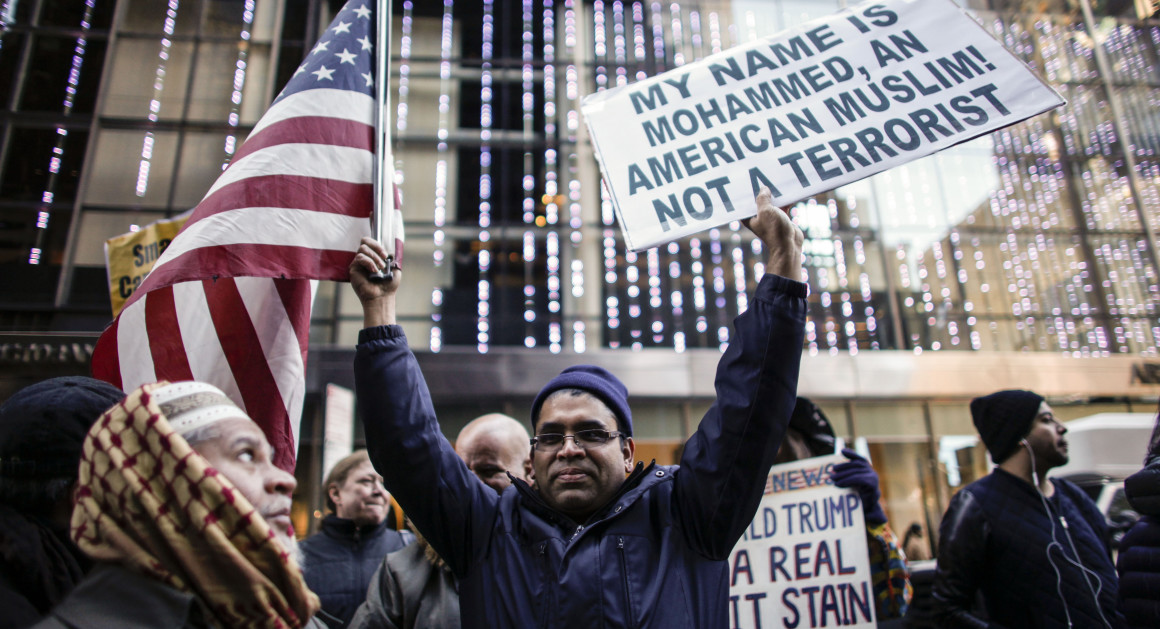
RNA - Muslim-Americans and other minorities holding national security jobs in the federal government fear for their futures under President-elect Donald Trump — enough so that some have held informal meetings to discuss how to protect themselves from potential anti-Muslim witch-hunts.
The employees are on edge about everything from retaining their security clearances to the possibility of discriminatory treatment under Trump, whose top aides include known peddlers of conspiracy theories about Islamists infiltrating the U.S. government. Many, especially in the intelligence realm, fret that Trump's rhetoric and actions could undermine their work by damaging America's relationships overseas. The sudden anxiety is extraordinary after eight years of life under President Barack Obama, who made pursuing diversity in the federal ranks a national security priority.
"I feel apprehensive," a Muslim intelligence official told POLITICO. "I fear that — whatever white power movement or equivalent all of a sudden feels empowered by the president-elect, whatever tidbits of that community make their way into government — at the most basic level people who are brown, Middle Eastern, Muslim or Sikh or whatever will either be looked at with a lens of suspicion or concern, or something more overt may take place."
“My initial reaction was, ‘Oh my God, should we quit and leave?’” said a State Department official of Muslim heritage who — like most sources contacted for this story — was unwilling to speak on the record for fear of angering the new administration. “People are still struggling to understand what it means right now. Does it make sense to stay on board? Do you wait to see what the policies are going to be? I just feel like it’s completely mysterious how this is going to work out.”
During his presidential campaign, Trump insulted numerous minority groups, including Mexicans, the disabled and African-Americans. But few groups felt the sting of his rhetoric as keenly as Muslims. Even though Trump has often framed his stance as being against “radical Islamic terrorists,” his call for a ban on Muslims entering the U.S., his hostility toward Syrian refugees and reports that he might re-launch a registry of immigrants from Muslim countries has made many in that community view his coming presidency with dread.
Since the Nov. 8 election, Muslims and members of other minority groups at the State Department have held informal meetings to talk about the implications of a Trump administration, multiple sources told POLITICO. Some of the gatherings have brought together Muslims and Jews, the latter of whom are deeply concerned about the anti-Semitism expressed by many Trump supporters. ("Muslims and Jews who disagree on Palestine and Israel are agreeing on this stuff," a State Department official of Arab descent told POLITICO.)
The anxieties are especially acute for career civil service and Foreign Service officers, who, unlike political appointees, are not immediately on the chopping block come Inauguration Day. Muslim employees especially worry they will be singled out, and that they may be denied promotions, lose their security clearances, be barred from certain assignments or otherwise be hampered in their jobs by Trump’s incoming political appointees. There’s been talk of organizing letters expressing the employees' concerns or taking other steps, but no concrete decisions have been made yet, several sources said.
Many of the employees are taking solace in U.S. laws that offer strong civil service protections, knowing that if they encounter discrimination they can file legal complaints. But others fear Trump aides may make moves that are hard to prove as being based on overt ethnic or religious discrimination, such as simply appointing fewer Muslims or other minorities to prominent posts at State, the Department of Homeland Security, the Pentagon or elsewhere.
These concerns have only grown since the election as Trump has handed out top jobs to people who have promoted harsh views of Islam and Muslims.
847/940